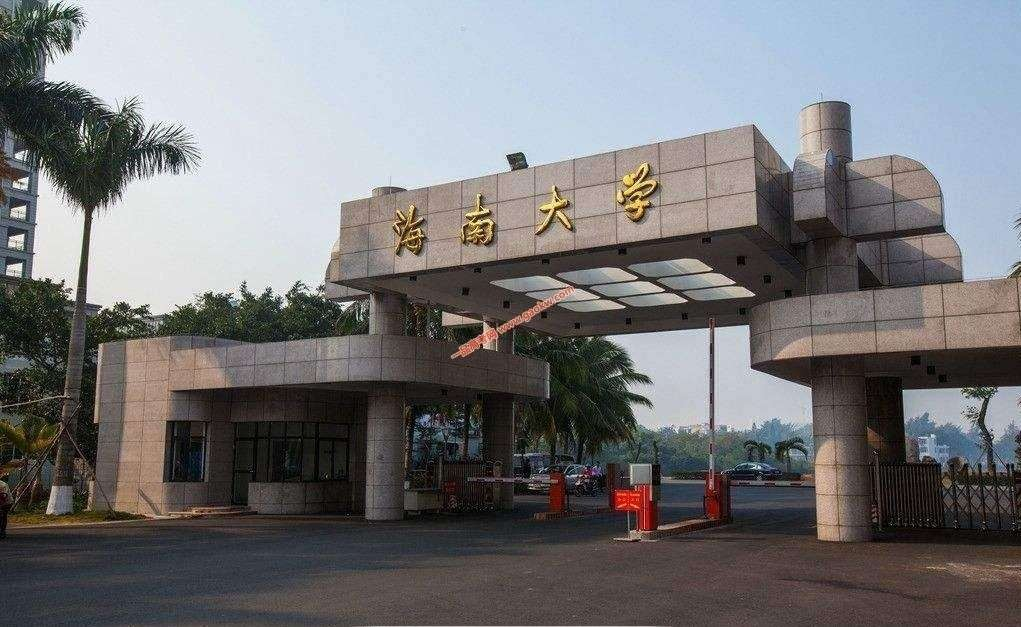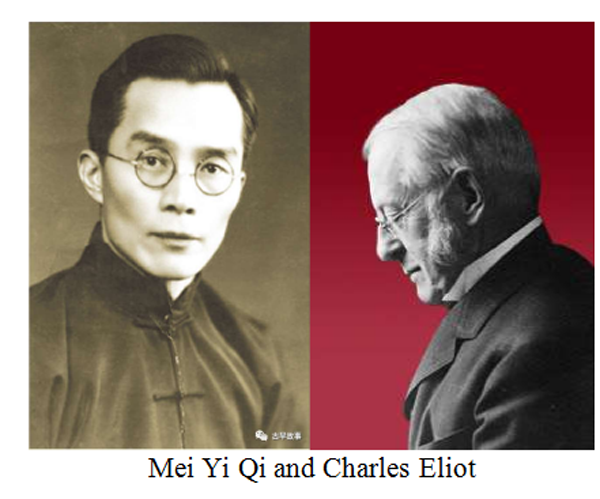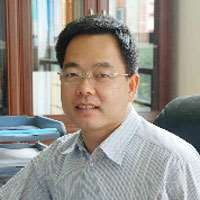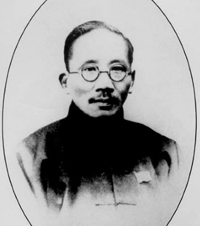Da Hsuan Feng: The Profound Importance of Leadership in Higher Education in the 21st Century
November 10 , 2022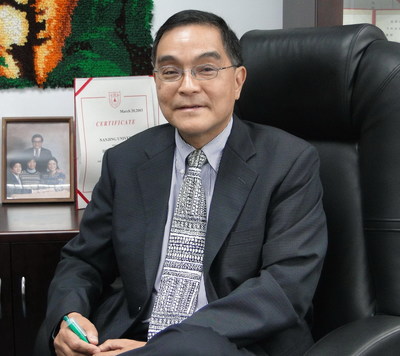
By Da Hsuan Feng, academic advisor of Center for China and Globalization (CCG), Chairman of Hainan University International Advisory Board, Honorary Dean of the Belt and Road Research Institute and former Vice President for Research at the University of Texas at Dallas.
We expect good leaders to have a vision, to state it clearly and frequently, and to take actions that advance toward its realization.
—Richard Levin, former President of Yale University
Good morning or good evening. I feel greatly honored to be invited to deliver this keynote speech for such an important conference. As you know, since 2019 when President Luo came on board, I was invited by him to form the International Advisory Board (IAB) of the university. President Luo was very surgical in requesting that the IAB not be one which interact only with the top leadership, but also interact with the students, faculty and administrators.
With that mission in mind, a large percentage of the IAB members were mindful in developing interactive activities with the university communities at large. Such interactions gave us a deeper understanding of the modus operandi of this university under the leadership of President Luo. It also provided us with a clear path to work with and assist as much as we can the development of this fast-growing aspirational university.
Personally, since for the past three years, I had the honor and opportunities to observe first-hand how this university operated, both its challenges and the mitigations, I thought the title I have proposed here which is Asian Higher Education Leadership in the 21st Century could be a poignant dialogue for our conference.
I understand that this conference is dedicated to the issue of “talent development” in higher education in general, Asian universities in particular. I am sure that among the distinguished guests who are invited to speak here today, there are experts who are literally carrying out this mission “on the ground” in their respective institutions. Obviously, on this issue, they have far more day-to-day expertise and wisdom than I do. So, what I will do instead is to discuss what I see as the most upstream challenge of the mission of this conference. To me, that is the leadership of a university!
As Isaac Newton famously said, “If I have seen further, it is by standing on the shoulders of Giants.” That is as true in the development of higher education as it is for physics.
With this as my preamble, I like to introduce here two great leaders. They are Mei YiQi (梅贻琦) and Charles Eliot, respective.
For many decades, Mei was the president of Tsinghua University. Mei famously said that 所谓大学者,非谓有大楼之谓也,有大师之谓也. A rough translation of this is “What makes a university is not the number of buildings it can have, but the number of great scholars, professors, and masters.”
Charles Eliot, for over forty years, from 1869 until 1909, he was the president of Harvard University. Eliot famous quotation is “… a university, in any worthy sense of the term, must grow from seed. It cannot be transplanted from England or Germany in full leaf and bearing. … When the American university appears, it will not be a copy of foreign institutions, or a hot-bed plant, but the slow and natural outgrowth of American social and political habits… The American college is an institution without a parallel; the American university will be equally original….”
It is particularly worth underscoring that while Mei and Eliot were profound products of their respective civilizations, Eastern and Western, as far as their understanding of the meaning of higher education is concerned, they clearly are far more similar than they are not!
Furthermore, it is also worth pointing out that throughout their very long respective careers, they did practice what they professed!
Unquestionably, for the mission of our Forum today, to initiate anything within a university, and building and cultivating talents is surely an ongoing effort within a university, one must clearly understand what a university is for? After all, without this understanding, one could easily go wayward in developing talents.
Unquestionably, these succinct Chinese words by Mei encompass the ultimate aim of the meaning of our conference today. I think it is important to point out what Mei YiQi was advocating is that within the buildings in a university, there must be great scholars who could understand why and how universities should exist. In the present context, talent cultivation must include properly recruiting and nurturing the best teachers for the university. I can see that Hainan University is doing this with great tenacity!
What is perhaps not stated but implied in these few words is that we need the best and the most open-minded scholars to ensure that the products which a university produces, namely the students, should not be narrowly “trained” and must be well educated in the broadest sense of the word. Indeed, the aim of a university is for its products to be contributing citizens for the wellbeing of the nation, and in more modern jargon, the world!
Another fact that is obvious but seldom mentioned about Mei’s comment is that these are words uttered not by anyone else, but by Mei YiQi. Indeed, these words were uttered by the president. After all, the president of a university is the window for the world to gaze into the institution. Not only should he/she decide on policies that could guide the university moving forward in a positive manner, he/she must also be the inspirational beacon of light for the institution! With these words, Mei YiQi had done that and continues to do so long after he was gone!
As I have mentioned earlier, Eliot was the president of Harvard for forty years, from 1869 until 1909. In fact, using today’s vernacular, “Harvard was not Harvard until Eliot was finished with it.”
Although Eliot lived in the 19th and early 20th century, with these words, his vision and leadership for higher education clearly transcend space and time.
In these succinct words of Eliot, there are two specific points he made that in my mind especially need scrutiny.
First, it is “When the American university appears, … (it is) the slow and natural outgrowth of American social and political habits.”
These words are profound words for the building of Harvard at the time when Eliot was its president. At that time, the United States’ civil- war had just ended, and the country was trying to pull itself together socially, economically, technologically and above all politically. The two habits that Eliot specifically mentioned, social and political, are the fundamental underlying structures of any nation, with any organizational structures. While it is easy to say them, social and political, they like all other human behaviors, are constantly transforming. And with transformation, it needs to be constantly updated and understood “in their present context.” With that as the preamble, what better place than a university to carry out an investigation to understand them! Indeed, with that, building a university and thus recruiting and cultivating talents certainly cannot be alien to such structures.
Once again, I must emphasize that Eliot was a university president who understood in a profound manner that adhering to the nation’s social and political habits was vital not only for how a university should and can flourish intellectually, it is also vital to the nation who will need a well-educated citizen emerging from the university.
Indeed, if one were to change the words “England or German” into “England and United States” and “American University” into “Chinese University” as follows,
“… a university, in any worthy sense of the term, must grow from seed. It cannot be transplanted from England or United States in full leaf and bearing. … When the Chinese university appears, it will not be a copy of foreign institutions, or a hot-bed plant, but the slow and natural outgrowth of Chinese social and political habits… The Chinese college is an institution without a parallel; the Chinese university will be equally original….”,
I hope you would agree with me that with such slight changes, the paraphrased words of Eliot could and maybe should very well be the motto of today’s Asian universities!
Second, it is “The American university will be equally original.” Indeed, a university, just like a human being, cannot be cloned! Each university must find its “soul”. I think no one would disagree with me that if at the Silicon Valley, we do not have Stanford University but the branch campus of Harvard University or MIT, it is highly probable that Silicon Valley would not be Silicon Valley. It is simply not possible to create the same souls of Harvard University and MIT, namely its deep intellectual ambiance they have created in Boston and transplant them in Silicon Valley!
Once again, I must emphasize that just like the comment of Mei YiQi, this comment of Charles Eliot also came from a university president. Once again, it shows that leadership is meaningful, and counts!
In the 21st century, a great deal of formally unthinkable things has taken place in higher education globally which even as recent as in the late nineties of the last century seemed unthinkable. These things made organizations such as universities to be searching for new modus operandi!
Before I end my talk, let me say a few things that is clearly relevant for the 21st century, and not be present in the days of Eliot and Mei.
One of course is the rapid and robust growth of the internet and the ubiquitous usage known as social media. A reason which prompted Thomas L. Friedman to propose in 2004 that the “World is Flat” was precisely because of that.
A spin-off from the revolutionary communication technologies is the fact that universities globally are now all looking over each other’s shoulders in “coopetition” (which is a new word by combining “cooperation” and “competition”). Competing for talents are happening not just “inter-country-wise” but also “internationally” far more intensely than they did in the 20th century. For example, from the “State of the University” speech which President Luo Qingming (骆清铭) delivered to the International Advisory Board last year, as President of this aspiring university, recruiting global talent was ranked as one of Hainan University’s most urgent responsibilities.
Anyone even vaguely associated with higher education today can testify the impact of “global universities ranking” has on the operation of higher education in the 21st century. In this regard, I think the person who literally started this “fashion” was Professor Nian-Cai Liu (刘念才) of Shanghai Jiao Tong University around 2003.
I first met Professor Liu in the beginning of the 21st century when he visited Dallas. He mentioned to me his idea of setting up such a ranking system. At that time, I must admit now that I was way too na?ve intellectually to understand how such an endeavor could and would impact higher education in the long run. In any case, soon after in 2003 he started it. If you are looking for this ranking website, it is called ARWU (Academic Ranking of World Universities).
Pretty much right after the initiation by Professor Liu, ranking of global universities became an onslaught from two other organizations. They are Times Higher Education (THE) and the hungry money-making QS outfit. Indeed, I cannot imagine that these ranking systems could have taken off had the internet technologies were not developing so rapidly and being so ubiquitous.
In 2004, when I was the Vice President for Research at the University of Texas at Dallas, I was invited by Professor Liu to attend the very first conference organized by him in Shanghai Jiao Tong University on the issue of “top universities.” He invited me partially was due to our conversations we had in Dallas.
`I remember very vividly that I was concerned then about how such rankings, which were totally unprecedented in the history of higher education, may and in all likelihood introduce “unintended consequences”. So, in my speech, I mentioned one aspect concerning the qualities of universities that should have been included in the annual ranking results.
In my speech, I explicitly mentioned was the importance of Peking University. Certainly, in the fledging period of the rankings, universities from China in general, and Peking University in particular was clearly not highly ranked.
The reason why I was concerned about the low ranking of Peking University was as follows. As is well known, an excellent university is measured by how it can transform a society, if not a nation. With this as a measurement, in the first half of the 20th century, there were two social movements which began in China, namely the May-Fourth Movement (五四运动) and the Vernacular Movement (白话运动). These movements were and still are transformative for the Chinese social behaviors, indeed its ways and means. I questioned the value of a ranking when a university, such as Peking University, which could impact the entire population of China (which by today’s estimate, is around 15% of humanity) for nearly a hundred years would be lowly ranked.
In addition, these two movements were propelled by the President of Peking University then, Cai Yuan-Pei (蔡元培). Without Cai’s deep understanding of the importance and complete support, I seriously doubt that these two movements could have been so successful.
None of these facts were reflected in the rankings!
Just like Mei and Eliot, the transformative movements of China initiated in Peking University probably would not be sustainable if Cai did not provide the leadership. Once again, it tells me that leadership counts!
Ladies and gentlemen, there is no question that China today is facing unprecedented challenges and transformations. In this scenario, within the higher education landscape, there is a need to have a large cadre of leaders with moral courage and administrative skill-sets, just like what Richard Levin, the president of Yale University said about Eliot, namely “We expect good leaders to have a vision, to state it clearly and frequently, and to take actions that advance toward its realization.”
Thank you so much for your attention.
Topical News See more

